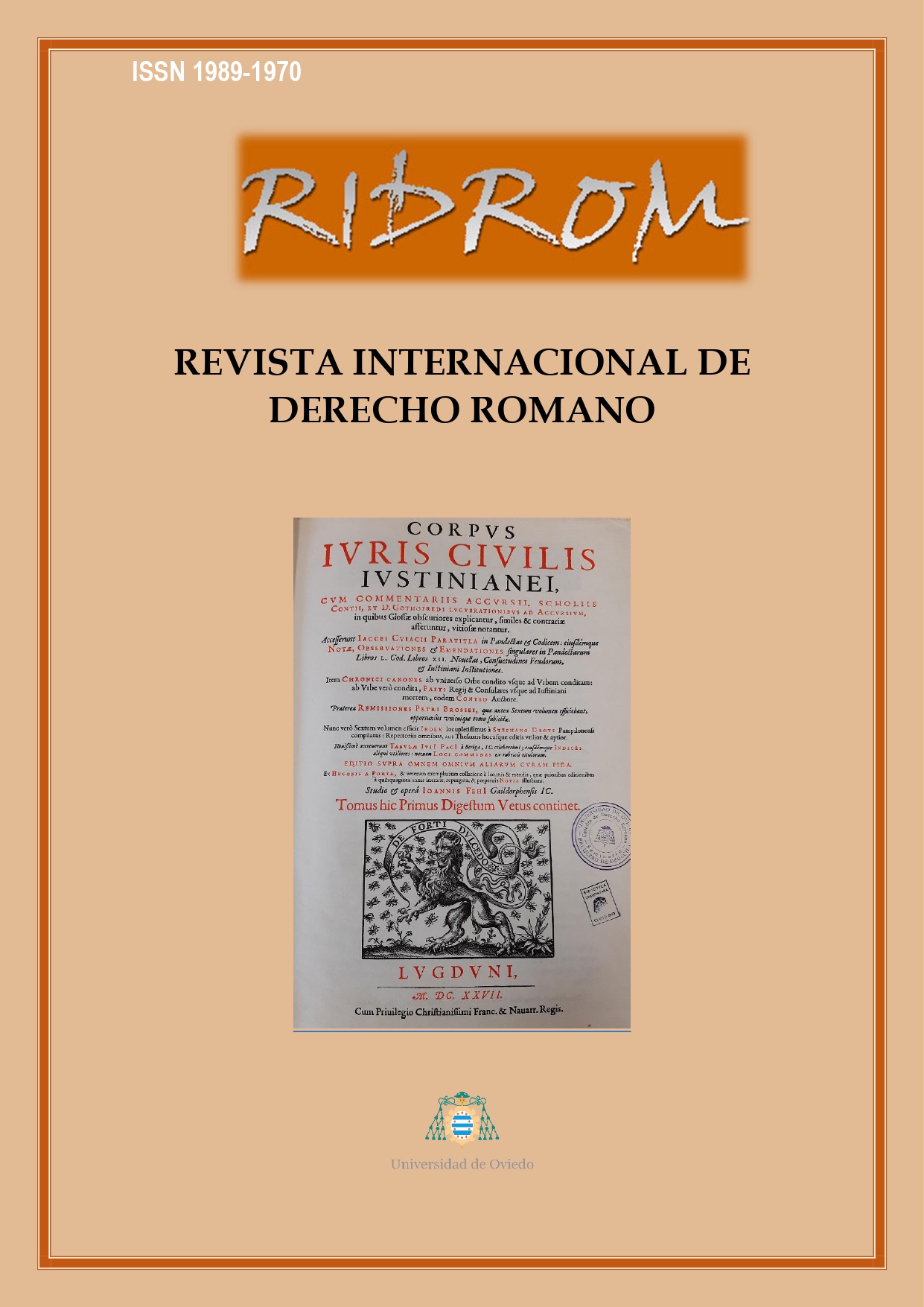Abstract
In the year 420 d. C., Theodosius II succeded in making Honorius accept a global approach in relation to the Empire, although he was the beneficiary of it, and it is promulgated. C. Th. 7, 16, 3. According to this Constitution, a ship is prohibited from leaving the Port to transport goods through the Mediterranean Sea if the shipowner or the merchant do not declare -before the defender of the place and in the presence of the most immediate officer to the General of the territory- the destination intented for the ship and that they are not illicit goods, which are not described in this rule. Everything is put on record and the statement must lack violence or extortion. The Justinian Code, 12, 44 (45), 1, mantains this regulation. This duty of manifestation by the magister navis or nauclerus in regard to the destination of the ship, remains in force in the Low Middle Ages and in the Modern Age.Downloads
Download data is not yet available.

